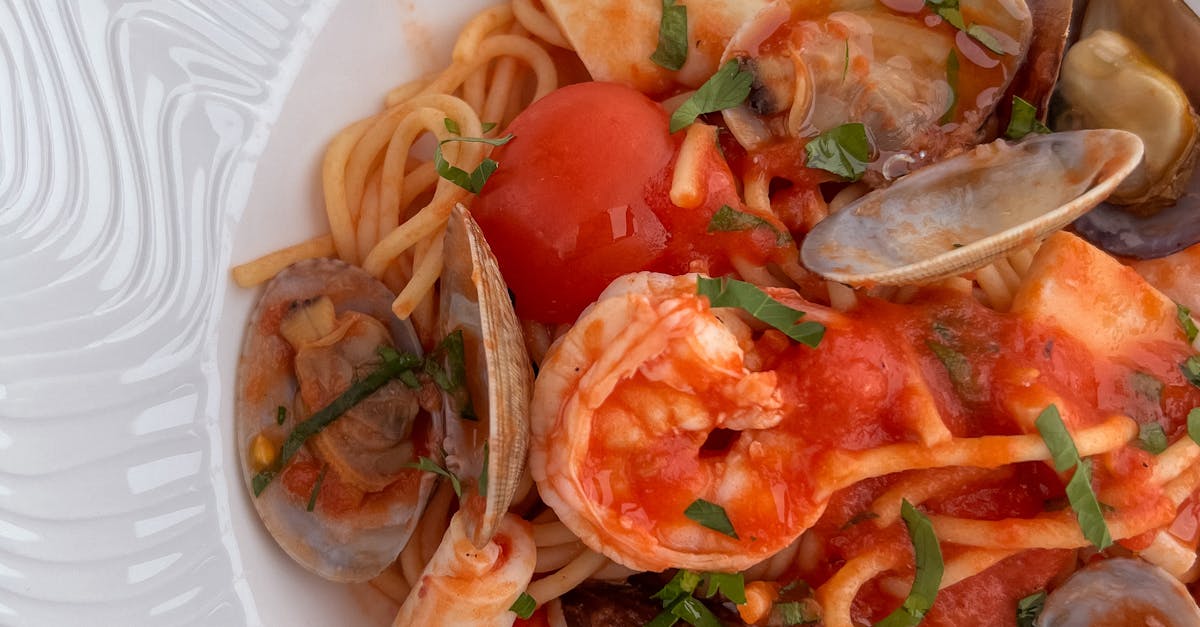10 Nutritional Facts About Frozen Lobster You Should Know

Frozen Lobster and its Glycemic Index
Frozen lobster has a glycemic index (GI) that is considered low, making it a suitable choice for those monitoring their blood sugar levels. Foods with a low GI release glucose into the bloodstream at a slower rate, which can help maintain stable energy levels. This characteristic is particularly beneficial for individuals aiming to manage diabetes or prevent spikes in blood sugar.
Additionally, the nutritional profile of frozen lobster contributes to its health benefits. It is rich in protein, providing essential amino acids while being low in carbohydrates. This composition makes it a smart option for those looking to enhance their diet with nutritious seafood that won't adversely affect glycemic control.
Suitable for Diabetic Diets
A low glycemic index makes frozen lobster an appealing option for those managing their blood sugar levels. Unlike many processed foods, it does not cause rapid spikes in glucose. This characteristic is particularly beneficial for individuals with diabetes who must monitor their carbohydrate intake closely. Rich in protein, frozen lobster provides essential nutrients without the added sugars found in some other protein sources.
Incorporating frozen lobster into a meal can enhance overall nutritional balance while being mindful of caloric intake. Pairing it with vegetables or whole grains further increases its health benefits without compromising flavour. This versatility allows for diverse meal options that can suit various dietary preferences. The inclusion of seafood like lobster can contribute to a diet that promotes heart health and supports weight management.
Frozen Lobster's Role in a Balanced Diet
Incorporating frozen lobster into a balanced diet offers numerous nutritional benefits. This seafood variety is rich in high-quality protein, which is essential for muscle repair and maintenance. Additionally, it contains essential vitamins and minerals such as B12, zinc, and selenium, all of which play critical roles in maintaining overall health. The low calorie content further makes it an appealing choice for those looking to manage their weight while still enjoying a delicious source of nutrition.
Adding frozen lobster to meals can enhance their flavour and elevate the overall dining experience. It pairs well with various ingredients, allowing for versatile recipes, from pasta to salads. Integrating seafood like lobster into regular culinary practices can contribute to a well-rounded diet, providing essential nutrients while diversifying meal options. Emphasising seafood consumption aligns with dietary guidelines that recommend increased intake for healthier eating habits.
Integrating Seafood into Meals
Incorporating frozen lobster into your meals can elevate the culinary experience while providing a host of nutritional benefits. Its distinct flavour pairs well with a variety of ingredients, making it a versatile choice for different cuisines. You can blend it into pasta dishes, use it as a topping for pizza, or create a delicious seafood chowder. The richness of lobster enhances salads, offering a protein boost and a gourmet touch to simple greens or fruit-based recipes.
When preparing frozen lobster, consider balancing its luxury with healthier components. Complement it with whole grains, such as quinoa or brown rice, and a medley of seasonal vegetables. This approach not only highlights the lobster but also forms a well-rounded meal. Experimenting with different herbs and spices can further elevate the dish without overpowering the delicate taste of the lobster. By integrating seafood thoughtfully, you contribute to a varied and satisfying diet.
Allergens Associated with Frozen Lobster
Seafood allergies can pose serious health risks for some individuals. Lobster, being a prestigious seafood option, can trigger allergic reactions in susceptible people. Symptoms may range from mild hives and stomach upset to severe anaphylactic shock. For those with known shellfish allergies, it is crucial to avoid any form of lobster, whether fresh or frozen, as even minute traces can cause a reaction.
Awareness of cross-contamination is equally important when handling frozen lobster. If prepared in environments where other shellfish are present, there is potential for allergenic proteins to transfer. It is advisable for consumers to check packaging and understand sourcing to ensure safety. Understanding these risks is essential for anyone considering incorporating frozen lobster into their diet, particularly those with a history of food allergies.
Awareness for Seafood Allergies
Individuals who enjoy seafood must remain vigilant about potential allergies. Shellfish allergies can manifest in various ways, including hives, gastrointestinal issues, and in severe cases, anaphylaxis. Symptoms can arise shortly after consumption, emphasising the need for immediate attention.
Cross-contamination is another concern for those with seafood allergies. Even trace amounts of shellfish can trigger reactions for highly sensitive individuals. It is essential to communicate dietary restrictions when dining out or purchasing pre-packaged meals to minimise risks.
FAQS
Is frozen lobster as nutritious as fresh lobster?
Yes, frozen lobster retains most of its nutritional value and can be just as nutritious as fresh lobster, provided it is flash-frozen shortly after being caught.
How does the glycemic index of frozen lobster affect diabetics?
Frozen lobster has a low glycemic index, making it a suitable option for diabetics as it does not cause significant spikes in blood sugar levels.
Can frozen lobster be part of a balanced diet?
Absolutely! Frozen lobster is a good source of protein, omega-3 fatty acids, and essential vitamins and minerals, making it a valuable addition to a balanced diet.
What are the common allergens associated with frozen lobster?
The primary allergen in frozen lobster is shellfish protein, which can trigger allergic reactions in sensitive individuals. It’s essential for those with shellfish allergies to avoid consuming it.
How can I integrate frozen lobster into my meals?
Frozen lobster can be used in various dishes, such as pasta, salads, or soups. Simply thaw it properly and add it to your favourite recipes for a seafood twist.
Related Links
Roundup of the Best Ways to Prepare Frozen LobsterHistorical Nutritional Trends of Lobster Consumption
Review of the Nutritional Benefits of Frozen Lobster
Why You Should Include Frozen Lobster in Your Diet
Why Frozen Lobster is a Healthy Choice